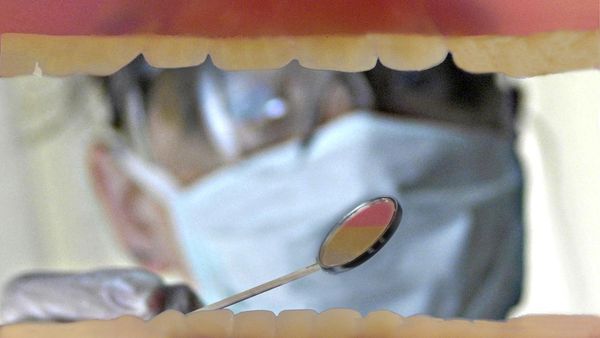
Adam Bandt’s proposal for what he bluntly calls a “Big Corporation Tax” on profits above “a reasonable rate of return” for companies with turnovers above $100 million would, he insists, “not take a cent from the pockets of Australians who rely upon returns from their investments, like pensioners or the 17 million Australians with superannuation balances.”
How he’ll achieve that without a magic pudding has yet to be explained. Companies that are earning “super profits”, however defined, normally pay those profits back to investors — a list that now includes every Australian worker via the superannuation system. Reduce those profits by increasing tax, and the dividends paid back to investors, including our big super funds, fall. The government gets more tax revenue, but everyone with a super account misses out on those extra dividends and the compound interest on them between now and retirement.
This is the flip side of the price gouging debate that we discussed back in March: ultimately, excessive profits of Australian-based companies flow back to investors, including super funds. They own nearly 40% of the Australian sharemarket, most of which is concentrated in the top end of the ASX 200 — and would include a heavy weighting of the companies the Greens single out for their proposed super-profits tax: the big banks, the big retailers, Telstra, Ampol. Bandt’s figures show he expects such a tax to generate around $27 billion a year once it’s up and running; for comparison, the entire company tax take this year is forecast to be $139 billion. We’re talking nearly 20% of current company tax.
If these companies pay higher taxes, they pay lower dividends. It’s pretty simple. The Greens can certainly argue that the revenues from such a tax could be put to a better use by a government than being left in super accounts (and thereby reinvested in the economy). They propose adding dental to Medicare, but one could think of a dozen better ideas than that. But they can’t argue that it won’t be at the long-term expense of not merely people living off dividends — they can fend for themselves — but every single worker in the country.
This is the nature of the Australian economy in the age of superannuation: virtually everyone has stake in Australia’s big corporations through their super accounts. There are no longer any pain-free options in areas like tax — in our circular economy, tax taken from one place will have impacts for everyone (it’s also one of the reasons why the Liberals’ continued hatred of the superannuation system is utterly eccentric — it’s a key mechanism for locking all workers into the fortunes of capitalism).
Bandt’s proposal will also affect investment. We know, particularly after the experience of Donald Trump’s company tax cut in the US, that cutting company tax has few of the near-magical benefits claimed for it. But, perversely, increasing company taxes does have negative impacts, especially on foreign investment. As one ANU paper put it, “the effect of high corporate tax rates in deterring investment is larger than the effect of low corporate tax rates in encouraging investment.”
According to the ANU team, “the literature consistently finds large and negative effects on investment of both statutory and effective corporate tax rates. A one percentage point increase in the corporate tax rate leads to a 3.3% decrease in Foreign Direct Investment (FDI).” But other economists have argued the size of that negative effect has shrunk since the global financial crisis. So Bandt’s proposal wouldn’t cause the same fall in investment as it would have 15 years ago — but there’ll be one nonetheless.
There’s another consequence: higher taxes will reduce cash flows and earnings and companies will be forced to write down the value of their assets. At least once year, companies have to conduct an impairment test against the cash generating ability of assets. That looks at the ability of the assets to produce revenue and earnings over a period from the next six months to five years. Assets are grouped into what are called Cash Generating Units (or CGUs) by accounting rules. Their valuation is influenced by interest rates, GDP estimates — and tax levels.
Impairment of an asset is the writing down of its balance sheet value — which becomes a tax loss that reduces the tax companies pay in future years. The Greens will need to change accounting and tax rules, otherwise the new tax will be offset by writedowns.
Then there’s the impact on dividend imputation. On the face of it, more tax paid could allow companies to lift tax free dividends — or it could cause them to sell or close assets that generate too many tax liabilities that the company and its investors can’t use. Either way, tax lawyers and accountants will be delighted.
That’s not to say that all of the Greens’ tax ideas are bad. Unlike Labor and the Coalition, they actually want a decent taxation regime for the fossil fuel giants — both local and foreign — selling our offshore gas, sometimes for little or no tax. Labor refuses to fix our offshore gas taxation regime because it might upset the punters in Western Australia, but the Greens are right to push for much higher taxation of Woodside, Santos, Shell, Chevron and other climate culprits for the use of finite resources owned by all Australians.
But on company tax, there are no magic puddings. Not anymore.
Do you back the Greens’ corporate tax plans, or are you worried about the unintended consequences? Let us know your thoughts by writing to letters@crikey.com.au. Please include your full name to be considered for publication. We reserve the right to edit for length and clarity.










